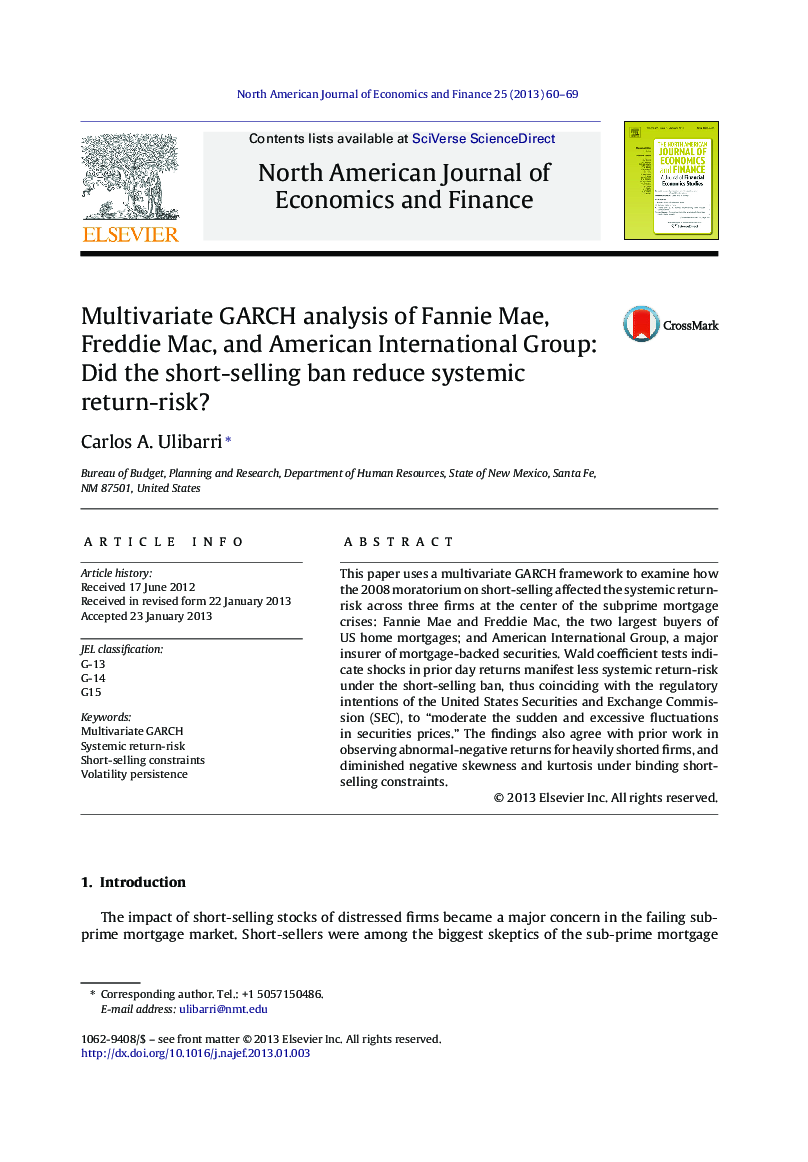| Article ID | Journal | Published Year | Pages | File Type |
|---|---|---|---|---|
| 975223 | The North American Journal of Economics and Finance | 2013 | 10 Pages |
This paper uses a multivariate GARCH framework to examine how the 2008 moratorium on short-selling affected the systemic return-risk across three firms at the center of the subprime mortgage crises: Fannie Mae and Freddie Mac, the two largest buyers of US home mortgages; and American International Group, a major insurer of mortgage-backed securities. Wald coefficient tests indicate shocks in prior day returns manifest less systemic return-risk under the short-selling ban, thus coinciding with the regulatory intentions of the United States Securities and Exchange Commission (SEC), to “moderate the sudden and excessive fluctuations in securities prices.” The findings also agree with prior work in observing abnormal-negative returns for heavily shorted firms, and diminished negative skewness and kurtosis under binding short-selling constraints.
► Wald tests on multivariate GARCH parameters confirm the 2008 short-selling ban reduced systemic return-risk of FNM, FRE and AIG. ► Parametric shifts in the conditional variance–covariance matrix resulted in less volatility persistence. ► Abnormal negative returns are observed for the heavily shorted firms, along with diminished negative skewness and kurtosis under the short selling ban.
